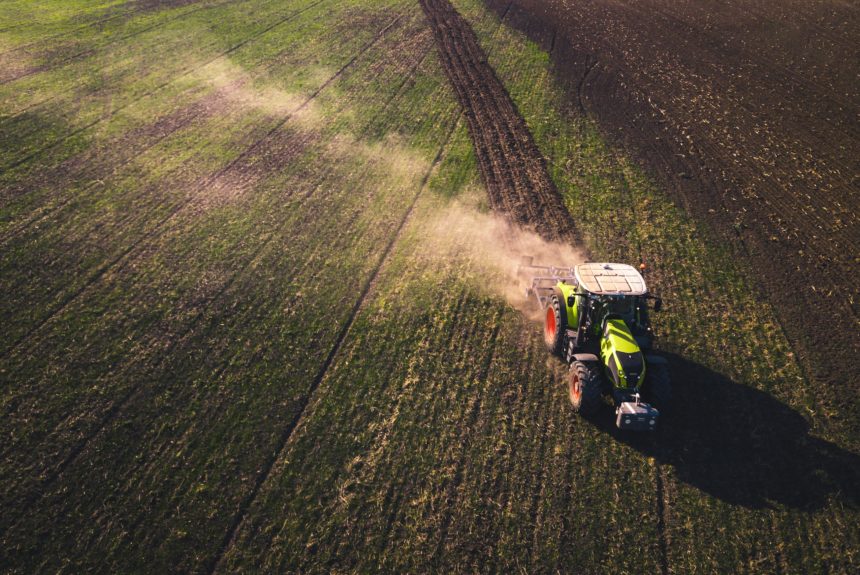The Kenya Nut Company, a nut processing facility in Nairobi, Kenya, will make history as the first farm in the world to produce its own sustainable fertilizer thanks to an innovative U.S. climate tech startup. Under a 15-year off-take agreement, Austin, TX-based Talus Renewables will supply Kenya Nut Co. with green ammonia via an on-site hydrogen-to-fertilizer facility. Ammonia is the key intermediate component in all nitrogen-based fertilizers.
>>>READ: The U.S. Bets Big on Clean Hydrogen
According to Bloomberg, The Nairobi plant will produce one ton of ammonia per day. Eventually, Talus plans to install plants that can yield as much as 200 tons of fertilizer daily. The four-year-old startup claims to offer “reliable, inexpensive, and carbon-free fertilizer.”
Talus’s revolutionary technology works by converting hydrogen to fertilizer using electricity drawn from an in-house solar farm. Traditionally, ammonia is made by stripping hydrogen from natural gas, a carbon-intensive process that releases large amounts of energy. On average, each metric ton of ‘grey’ or natural gas-based ammonia produced releases 1.9 metric tons of greenhouse gases. Talus’ solution switches things up by splitting hydrogen molecules from water rather than from natural gas. The hydrogen then bonds with nitrogen in the atmosphere to form liquid ammonia, the basic building block of commercial fertilizers. By removing natural gas from the equation, Talus is able to vastly cut the carbon intensity of ammonia production.
Apart from offering a sustainable ammonia alternative, Talus’s first-to-market product is also cost-competitive. Talus co-founder and CEO Hiro Iwanaga told Bloomberg that the average bag of fertilizer in sub-Saharan Africa travels 10,000 kilometers, racking up a significant price tag and a large carbon footprint in the process. Switching to locally produced ammonia will slash the carbon impact of the ammonia industry and help farmers save money by streamlining their operations. This is especially true for subsistence farmers in the Global South who tend to be most affected by the unpredictable effects of costly supply chain shocks. Maintaining a steady reserve of necessary agricultural inputs like fertilizer is also critical to addressing food insecurity in developing nations.
>>>READ: Five Companies that are Advancing Regenerative Agriculture
Talus’ technology not only offers a produced on-site, low-cost source of hydrogen, but it also offers a viable pathway to energy independence by eliminating supply chain instability. To date, the West has been overly reliant on authoritarian regimes like Russia for the ammonia that is needed to produce fertilizer (Moscow is the world’s leading producer of ammonia after China). Following the Russian invasion of Ukraine, sanctions targeting Moscow and Minsk have hindered the global supply of fertilizer, sending prices skyrocketing. In-house ammonia production is key to bypassing any potential supply chain disruptions in the global market for fertilizer and ensuring a continuous supply of this critical commodity.
“The green ammonia that Talus’s systems produce is both reliable and locally produced, which reduces costs by addressing supply chain insecurity and challenges,” Matt Carstens, CEO and president of Iowa-based farming cooperative Landus said. Green ammonia is “an exciting innovation to consider.”
Talus has plans to expand in a number of locations across Africa and the U.S. Talus is also partnering with Landus to bring clean ammonia to the state of Iowa, as well as with mining firms interested in using clean ammonia for their blasting operations. The startup is currently running a funding round to secure more financing, with plans to host a larger one in 2024.
Globally, the ammonia industry is responsible for 2% of all CO2 emissions, a figure that rivals the carbon footprint of commercial aviation. As one of the most important industrial chemicals worldwide, ammonia is central to meeting our global food needs and a key component in major industrial applications. Talus offers a sustainable, low-cost ammonia alternative that will save farmers money and help the agricultural industry reduce its emissions.
Nathalie Voit is a freelance content creator and a graduate of the University of Florida. She is an alumni of The Heritage Foundation’s Young Leaders Program.
The views and opinions expressed are those of the author’s and do not necessarily reflect the official policy or position of C3.
